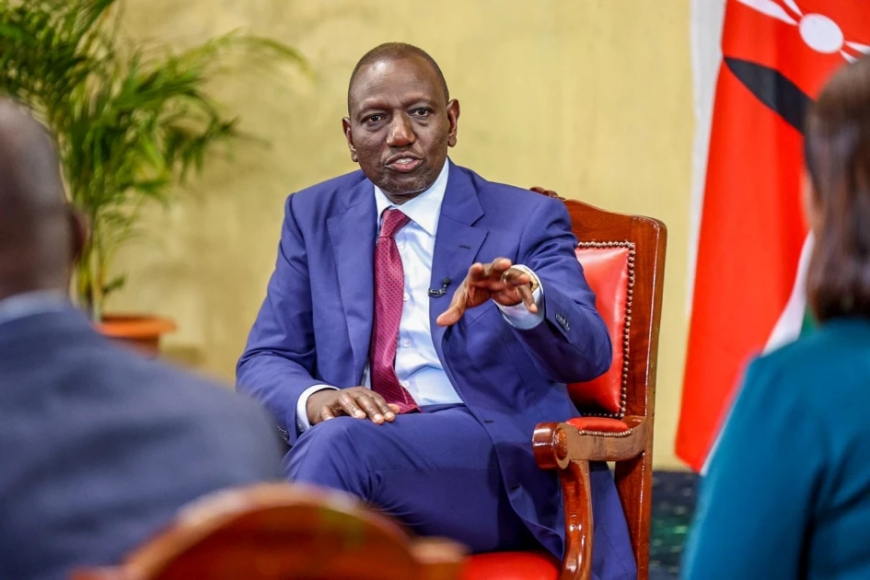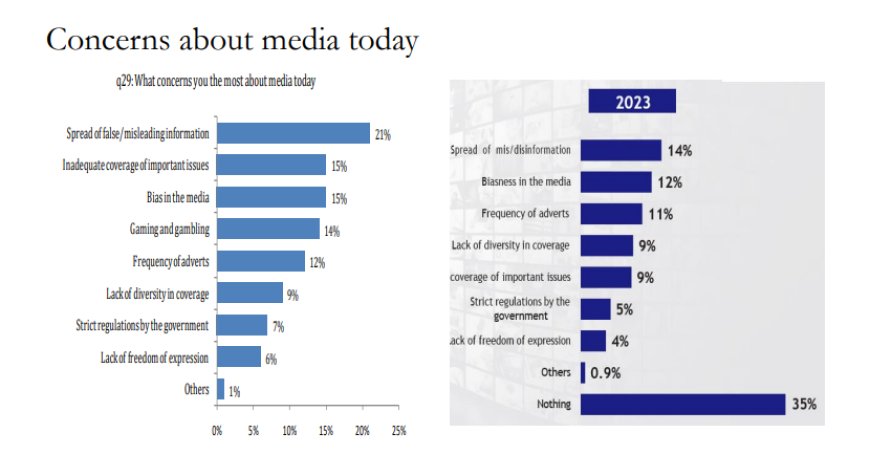Kenyans Believe Media Is Covering Govt Unfairly: MCK Report
MCK revealed that 73 per cent of Kenyans believe that the media has been giving unfair coverage of the government, while 27 per cent say otherwise.

The Media Council of Kenya (MCK) on Thursday, May 15, disclosed that a majority of Kenyans are unhappy with the day-to-day coverage by the media on the government.
In the State of Media Survey Report 2024, the MCK, an independent, national institution established to regulate and develop the media sector in Kenya established by the Media Act of 2004, revealed that 73 per cent of Kenyans believe that the media has been giving unfair coverage of the government while 27 per cent say otherwise.
By gender, 72 per cent of men accused the media of covering the government unfairly, and 75 per cent of women perceived the same. In contrast, 28 per cent of men say the media has been giving the government fair coverage, backed by 25 per cent of women.

The Standard newspaper headline as of May 8, 2025. /STANDARD DIGITAL
"Respondents in Peri-Urban (76%), urban (74%) and Rural (72%) all think the government is not covered fairly," the report states, adding that respondents in urban (26%), rural (28%) and peri-urban (24%) argue that the media is covering the government fairly.
The perception of Kenyans that the media does not cover the government fairly comes as the media has, of late, been highly critical of the government through hard-hitting headlines and news pieces.
These have seen government officials blame certain Kenyan media outlets for straying from the truth and pushing propaganda intended to tarnish the government’s image.
The Standard newspaper, for example, has gained a reputation for throwing jabs at high-profile politicians and government officials, who have expressed outrage in response. One of its headlines, titled Lies Getting Bigger, was seen as a direct attack on President William Ruto's administration, and drew the attention of Foreign Affairs Principal Secretary Korir Sing'Oei.
In a short statement on Thursday, May 8, Sing’Oei stated, "When the media morphs from truth-seeking into political propagandists and information anarchists, the population must be more circumspect in the consumption of media content", on his X account.
Amidst all this, there have been some accusations that the state is “in bed” with the MCK, something ICT and Digital Economy Cabinet Secretary William Kabogo denied on Thursday, May 15, stating that the council is not working subjectively to please the government of the day.
“The government is not in bed with the Media Council of Kenya (MCK). If I may use that language because it is commonly referred to, meaning that we do things that are there just to help the government,” he stated while speaking at the 2025 Annual Media Summit held in South C, Nairobi.
Kabogo challenged the media to continue criticising the government where needed, but to do it responsibly, decrying instances of misreporting, particularly on matters concerning President Ruto's administration. "Let us report things as they are. It is important to report responsibly,” he urged.
Meanwhile, the report revealed concerns Kenyans have about the media today, with a majority of them citing spread of false/misleading information, which has been on the rise between 2023 and 2024.
Kenyans who participated in the survey also cited inadequate coverage of important issues, bias in the media, gaming/gambling and frequency of adverts as other major concerns about the media today.







